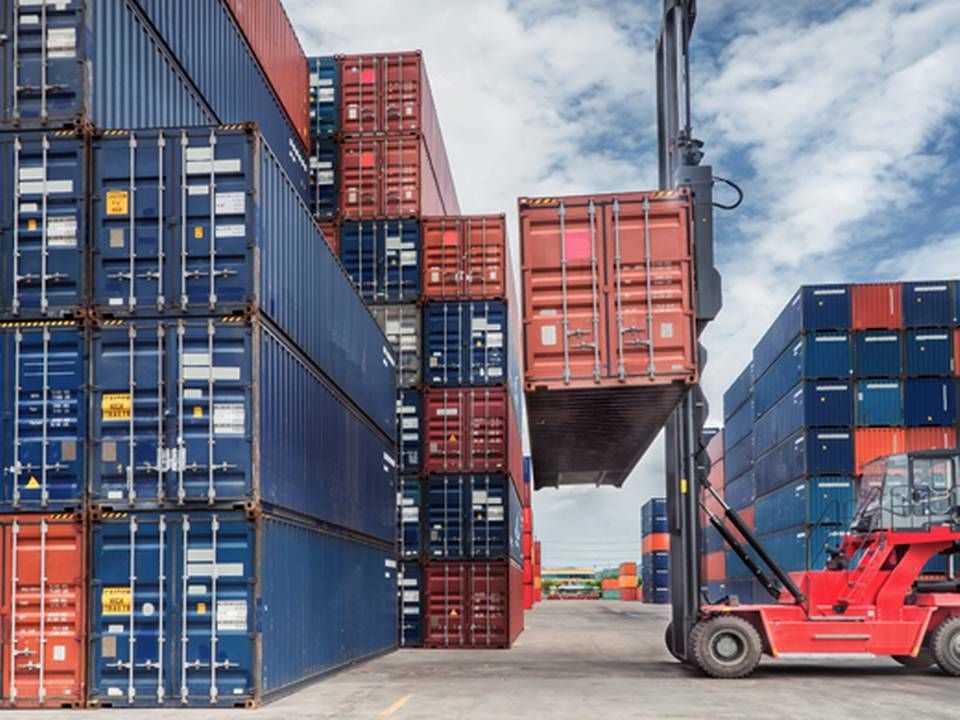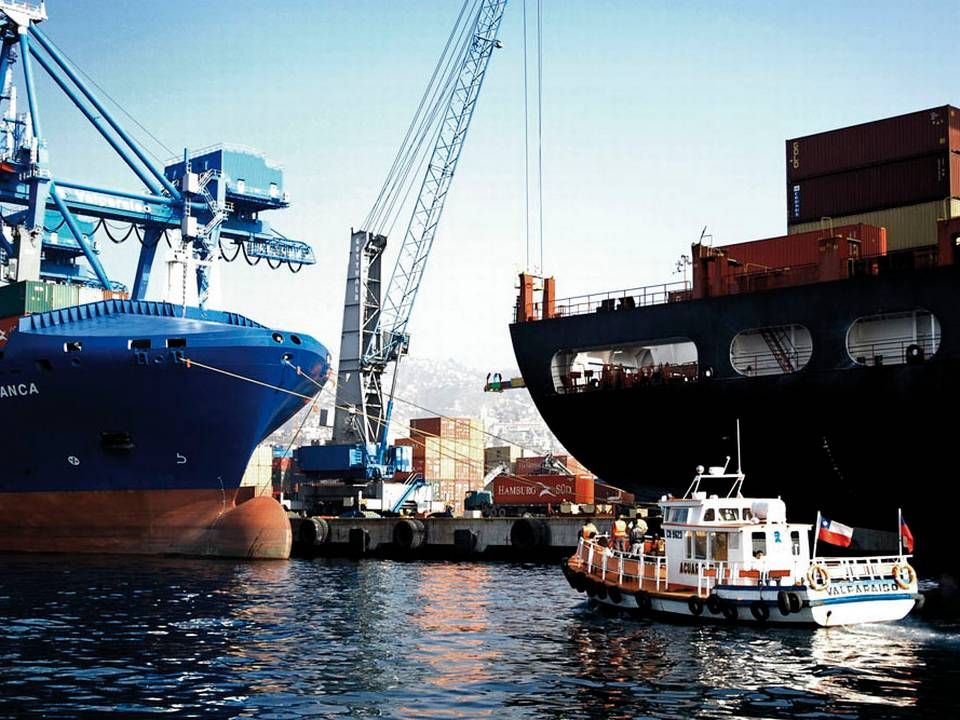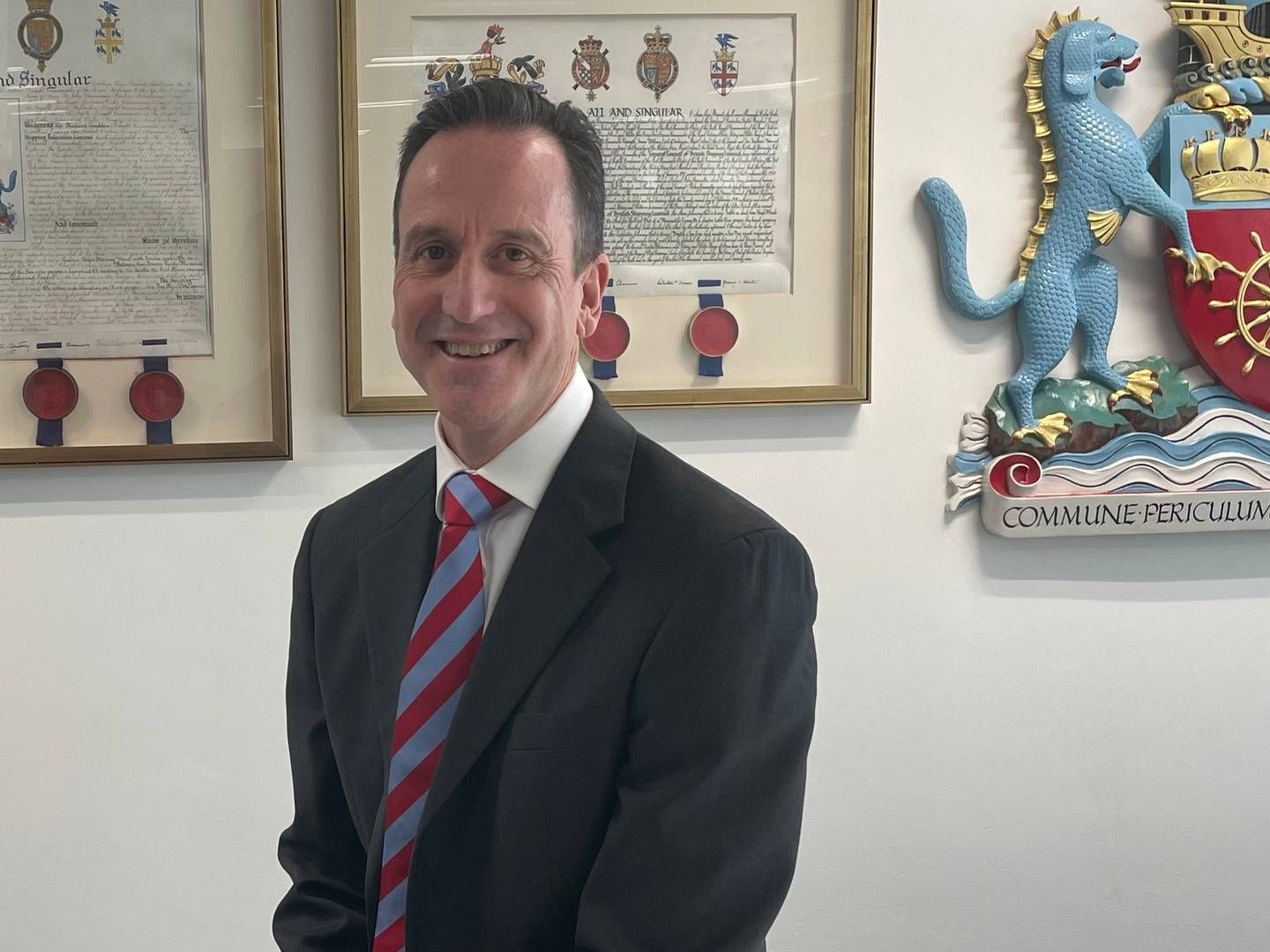EU's top maritime official sets sails

Born in the south of Poland, it was neither her home town nor the iconic city of Krakow where she studied which shaped the professional path within seaborne transportation.
Perhaps it all began for Magda Kopczynska when she later worked with urban mobility for the Mayor of Warsaw, which turned out to be the first step in a career headlined by the transportation of masses of people and goods on land and water.
A few weeks ago, Magda Kopczynska took over the reins in Brussels at DG Moves Waterborne Directorate, and she is thus in charge of one of the most highlighted transportation policies right now with the implementation of the EU-Commission's maritime strategy, which is expected to deliver results in 2017. Her political boss, EU-Commissioner Violeta Bulc, has dedicated next year to the maritime agenda following her decision to split up her reign in separated modals of transportation. As such, the timing could not be better for 46-year old Magda Kopczynska, who is described as much more than an ordinary official in the bureaucracy of Brussels. One thing is she loves extreme ocean sailing.
Fascinated by mass transportation
In that respect, history somehow repeats itself when she in a few weeks' time leaves for Argentina to embark on a 66 foot sailing boat joining a 10 member crew. Last time she was appointed a position in DG Move's waterborn unit five years ago, coincidence had it that she had planned to fly to Ushuaia in South America to sail across the Drake Passage to the Antarctic. This time the 1,000 nautical mile trip from the Argentinean mainland to the isle of South Georgia has once again been planned for quite a while and months before she any idea that she would take over the position of director which Fotis Karamitsos has had for decades.
"I am fascinated by transportation of masses. Transportation is one of the political areas where the results of the EU-Commission translate directly into the daily life of people. Road, rail, aviation and sea, you cannot work with something which is more relevant to all Europeans. This accounts for the maritime sector also. Many people are dependent on ferries, and generally 90 percent of all goods and commodities are transported by sea which makes it highly important for all," Magda Kopczynska explains in an interview with ShippingWatch.
The maritime industry, she adds, is not very visible in the daily life of most consumers, although virtually all products they buy or digest began their journey on a boat. A challenge she believes should be addressed based on the logic that if things are invisible in the public, they tend to be difficult to give importance or change on a political level.
Involvement is crucial
As the highest ranking official in the seaborne directorate, she is crucial to how the EU’s maritime strategy will be presented, perceived, negotiated and implemented. Her tool box is organized from years of experience in the shadow of European politicians and a pragmatic access aimed at securing a satisfactory result.
"Involvement of all stakeholders is key to achieving a good result in the end. In a maritime perspective, shipowners, operators, ports, shippers, shipyards, suppliers, just to mention some, should be included in the process. Parallel to this, all political levels must be consulted and involved. The Commission, other directorates, European parliamentarians, national politicians. Finally, initiatives of DG Move should be balanced with the overall ambition of the EU-Commission and other directorates," she explains, giving an insight into the complexity of what may seem rater simple on the surface.
How can you take all these interests into account?
"I listen to what everybody says, and all interests should be heard. My door is always open, and I am happy to discuss any kind of issue. Generally speaking, however, with its member states and interests, a lot of European politics is about balancing different views. I guess you can describe it as an act of compromise. It is often a lengthy process with sometimes as long as two years to prepare an initiative and then another two years to achieve the objective. During this process, a lot of compromises are reached," she says.
Maritime events launched in 2017
EUs maritime agenda involves a number of events set to be launched from January. This contains specific headlines presented by Violetta Bulc: Safety, digitalization, green shipping, the seafarers’ competencies, and the global dimension are the words setting the frame for next year. These topics match with the own keywords which the new directorate believes can make a difference:
"Modern. Safe. Green. Gobal." She formulates her vision in four words. And timely delivery, she adds knowing that Brussels can be perceived as a political roadblock, where good intentions tend to run aground.
She knows she is undertaking an executive position where many will keep an eye on her performance, and says and that “you should be aware of the huge responsibility you assume.”
Enthusiasm, however, is often key to success, or as she puts it:
"You can take a girl out of transport, but you cannot take transport out of a girl."
EU politicians want to stop Maersk's scrapping in Alang
Here are the priorities of the EU maritime strategy
Related articles
EU politicians want to stop Maersk's scrapping in Alang
For subscribers
Here are the priorities of the EU maritime strategy
For subscribers
A look at the EU's maritime agenda in 2016
For subscribers





















